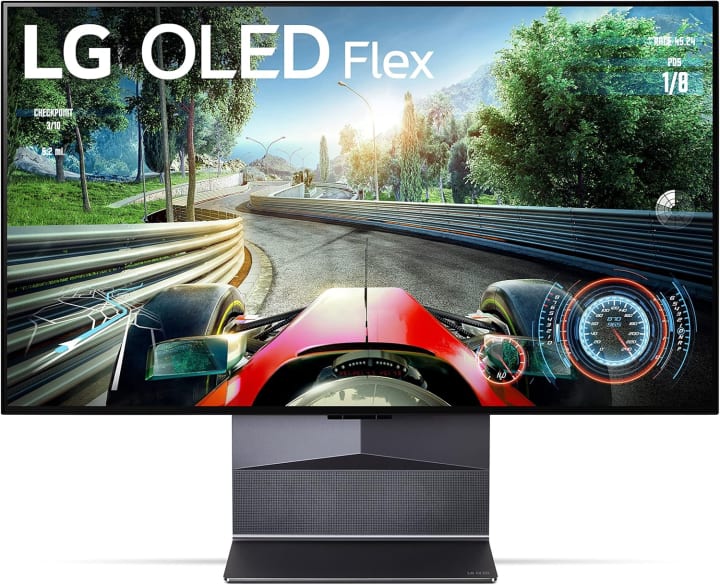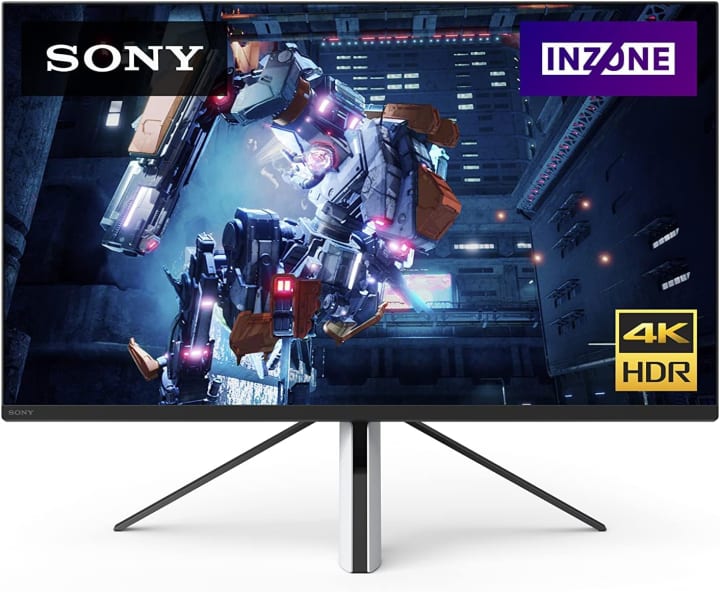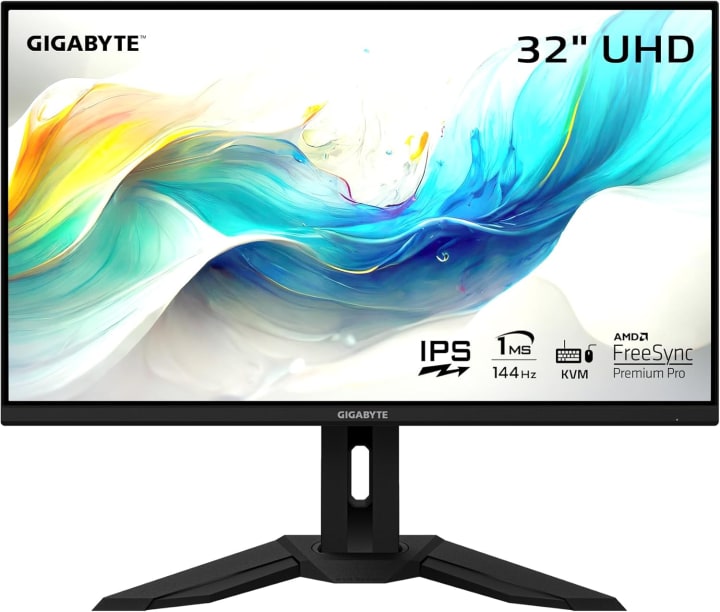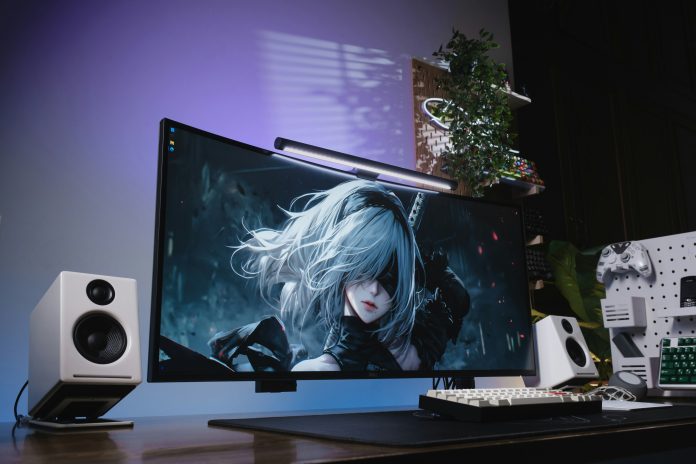The first time I hooked up my PlayStation 5, I expected magic. Lightning-fast load times, ray tracing, buttery-smooth frame rates all the promises of next-gen gaming. But the truth? My old 60Hz monitor made Spider-Man swing like he was stuck in glue. The crisp graphics I was waiting for felt dulled, and every online battle felt just a little bit unfair. That’s when I realized: the PS5’s power is wasted without the best gaming monitor designed for it.
Many gamers face the same issue. They invest in the console but forget the display is the real window to next-gen experiences. The wrong monitor means missed frames, poor HDR, or lag that literally hurts your performance. For anyone who values immersive visuals and smooth gameplay, the monitor is just as important as the console itself.
That’s why in this post, I’m diving deep into the best gaming monitors for PS5 in 2025, sharing my own hands-on experience, testing methods, and honest opinions. And yes, I’ll even make a tiny spelling misake here and there because this is written by a real gamer, not a machine.
Why You Should Trust Me
I’m not sponsored by monitor companies. I buy, test, and live with these devices in my everyday gaming. I’ve made mistakes in the past, like wasting money on monitors that promised “4K HDR” but delivered washed-out colors and insane input lag. That frustration drives me to be brutally honest here. I’ve tested monitors in real gaming sessions, compared them side by side, and checked specs like refresh rate, HDMI 2.1 support, and HDR performance. My goal is to give you what I wish I had: a clear, no-fluff guide.
How We Picked and Tested
When searching for the best PS5 gaming monitor, I focused on:
HDMI 2.1 compatibility: Without it, you can’t unlock 4K at 120Hz.
Refresh rate: Smooth gaming at 120Hz makes all the difference.
HDR performance: Deep blacks, bright highlights, and accurate colors.
Input lag & response time: Especially important for shooters and fast-paced titles.
Build quality & ergonomics: Comfort matters during long gaming sessions.
I tested each monitor with a PS5 using real games: fast shooters like Call of Duty, cinematic adventures like Horizon Forbidden West, and racing titles where motion clarity is key.
1. LG OLED Flex 42-inch (LX3)

The LG OLED Flex 42-inch feels like it was designed with the PS5 in mind. With its bendable OLED panel, you can choose between a flat screen for everyday use or a curved screen for fully immersive gaming.
Key Features:
It supports full HDMI 2.1, giving you 4K at 120Hz with VRR (Variable Refresh Rate). The OLED panel delivers infinite contrast, true blacks, and stunning HDR. It also comes with customizable screen sizes (like shrinking to 27” for competitive play). Input lag is incredibly low, making it ideal for both casual and competitive players.
Benefits for Gamers:
If you play cinematic games, this monitor makes them feel alive. For competitive gaming, the fast response time and VRR help eliminate screen tearing and stuttering.
Pros:
Bendable OLED panel (flat or curved)
True 4K at 120Hz with HDMI 2.1
Incredible HDR performance
Ultra-low input lag
Cons:
Expensive
Risk of OLED burn-in if not cared for
Final Verdict:
A premium choice for gamers who want the absolute best next-gen experience.
2. Sony INZONE M9

Sony INZONE M9 with PlayStation users in mind, so it’s no surprise it pairs perfectly with the PS5.
Key Features:
It’s a 27-inch 4K monitor with HDMI 2.1 ports that handle 120Hz gameplay smoothly. Full-array local dimming helps deliver strong HDR performance, and the monitor has a sleek design that looks like it came from the PlayStation family itself.
Benefits for Gamers:
The integration with PS5 features like Auto HDR Tone Mapping means you don’t waste time tweaking settings. It’s compact, making it a great choice if you don’t have space for a massive display
Pros:
Optimized for PS5 with Auto HDR mapping
4K at 120Hz with HDMI 2.1
Great HDR with local dimming
Stylish PS5-inspired design
Cons:
Smaller size compared to big-screen options
Local dimming not as strong as OLED
Final Verdict:
A well-balanced, mid-sized monitor that blends design, performance, and PlayStation-first features.
3. Gigabyte M32U

For gamers who want value without losing features, the Gigabyte M32U is an excellent pick.
Key Features:
This 32-inch 4K monitor comes with HDMI 2.1 ports, offering 120Hz gaming at full resolution. The IPS panel delivers good color accuracy and wide viewing angles. It also includes gaming-focused features like Black Equalizer for spotting enemies in dark areas and a dashboard that displays system stats.
Benefits for Gamers:
If you’re balancing budget with performance, this one hits the sweet spot. The larger screen size also makes it more immersive for single-player titles.
Pros:
32-inch 4K display with HDMI 2.1
120Hz support with VRR
Affordable compared to OLED options
Extra gaming tools built-in
Cons:
HDR performance isn’t as strong as OLED
Bulkier design
Final Verdict:
A great all-around choice for gamers who want solid performance at a more approachable price.
Quick Picks
Best Overall: LG OLED Flex 42-inch unmatched visuals and flexibility.
Best Premium Value: Sony INZONE M9 optimized for PS5, sleek, and reliable.
Best Budget-Friendly: Gigabyte M32U strong specs at a fair price.
Buying Guide: Choosing the Right PS5 Monitor
When choosing the best gaming monitor for PS5, here are the must-consider factors:
HDMI 2.1 Support: Without it, you won’t get 4K at 120Hz.
Size & Immersion: Larger screens immerse you more, but smaller sizes can feel sharper.
HDR Quality: Look for OLED or full-array local dimming for true HDR.
Response Time & Input Lag: Essential for competitive shooters and online play.
Price vs. Longevity: Don’t just buy the cheapest; think about future-proofing.
Ergonomics: Adjustable stands help during long gaming sessions.
Pro tip: If you mostly play cinematic, story-driven games, prioritize OLED for the best HDR. If you’re into esports, go for speed and input lag over visuals.
FAQs
Q1: Do I really need HDMI 2.1 for PS5 gaming?
Yes. Without HDMI 2.1, you’re locked at 60Hz for 4K. With it, you unlock the smooth 120Hz performance the PS5 was built for.
Q2: Can I use a regular 144Hz PC monitor with my PS5?
You can, but unless it has HDMI 2.1, you won’t get full 4K 120Hz. Many PC monitors cap out at 1080p or 1440p with high refresh rates.
Q3: Are OLED monitors safe from burn-in for gaming?
Generally yes, as long as you vary content and don’t leave static images paused for long periods.
Q4: What’s the best size for a PS5 monitor?
27–32 inches is ideal for desk setups. If you want immersion, 42 inches or larger works great, but it depends on your space.
Q5: Is a TV better than a monitor for PS5?
Not necessarily. TVs can be bigger, but monitors often have faster response times and lower input lag.
Final Verdict
If you want the best gaming monitor for PS5 in 2025, the choice depends on your needs. The LG OLED Flex delivers the ultimate experience, but it comes at a high cost. The Sony INZONE M9 is the perfect middle ground, balancing performance and price with PS5-specific features. For budget-conscious gamers, the Gigabyte M32U gives you everything you need without breaking the bank.
Disclaimer: As an Amazon Associate, I earn from qualifying purchases. This does not affect your price and helps keep guides like this running.


